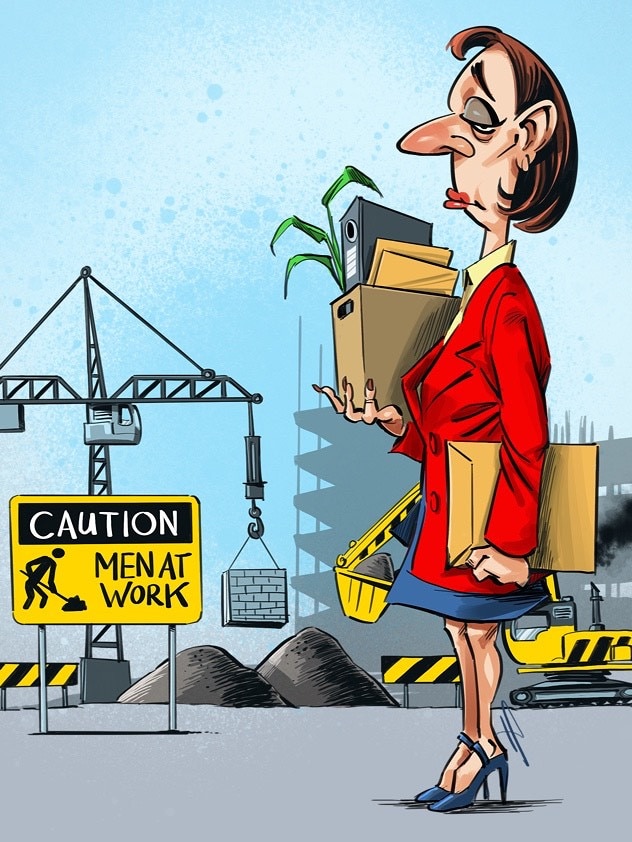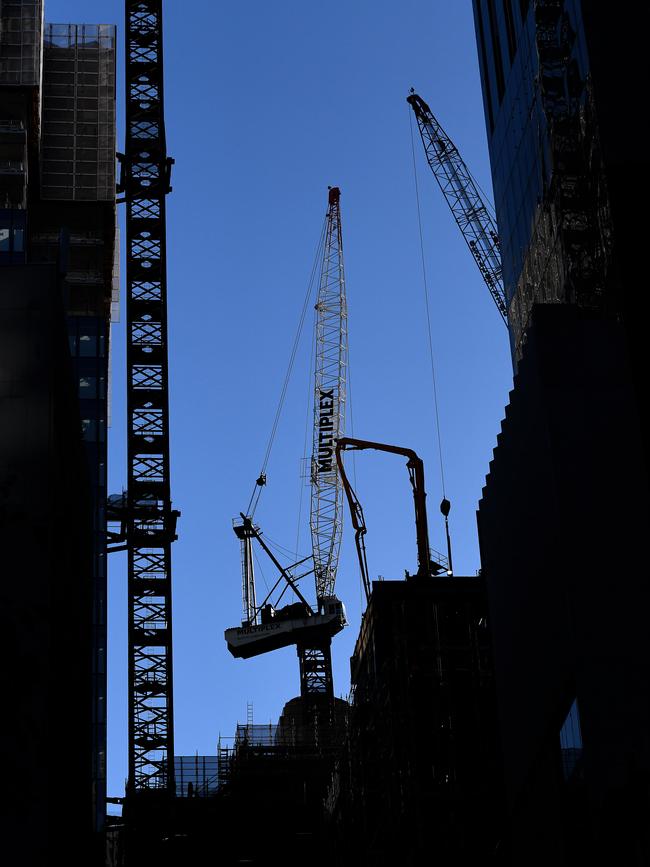Working mums hit hardest by coronavirus job losses
Pulling the trigger on major infrastructure projects was an obvious move for the state government, but it leaves behind too many women left unemployed by shutdowns, writes Anna Caldwell.
Opinion
Don't miss out on the headlines from Opinion. Followed categories will be added to My News.
In the months leading up to the 2019 election, Gladys Berejiklian went on a pink vote offensive — a guerrilla campaign to win the support of working mums.
These mums, aged between 35 and 54, had emerged as an initial hurdle in early polling.
In short, they were utterly fed up with the state government, clocking a 34 per cent dissatisfaction rate in the weeks leading into the campaign.

Berejiklian and her team spotted the problem then worked tirelessly to connect with these women, promising to take the pressure off working families in targeted, personal letters.
And it worked. By last March, when we all went to the polls, the mum vote was on her side. Their dissatisfaction had been neutralised to a net zero as she romped to her victory.
I’ve found myself wondering how those mums must be feeling now.
MORE OPINION
Comedy icon’s condemning no laughing matter
Frankly my dear, they don’t give a damn: left’s cancel culture unstoppable
‘Exhausting’: Why my white ex called after BLM protests
They are, in fact, more likely to have been hurt by the economic ravages of coronavirus than anyone else.
Some are calling this economic crisis a “pink-collar” recession, acknowledging that it is women who dominate the industries hardest hit by the slowdown and also the casual workforce that has been the least supported by government subsidies.
It was after asking in this column last week for readers to write to me if they had lost their jobs that I truly began to contemplate the disproportionate burden of virus job losses on women.
Readers asked me what could be done for women in their 40s who have been forced out of work in industries razed by COVID.
These are women more often in casual work unsupported by JobKeeper and meanwhile taking up the extra work of schooling kids at home.
The emails I received told me that women have been hit hard and they feel forgotten.

Analysis from the Australia Institute this week fleshed out the problem.
It found that women made up 47 per cent of the employed in March, but lost 55 per cent of the jobs slashed in April.
Full-time employment rates fell by 2.5 per cent for women in March and April, and 2.2 per cent in the same time for men.
When it came to part-time work, 224,500 women lost their jobs while 149,300 men lost theirs.
The paid work hours for women still employed were cut back by 11.5 per cent, as opposed to 7.5 per cent for men.
This is not to dismiss the unemployment impacts on men.
But we need to contemplate how we make sure women aren’t left behind and left out as we start to bring the economy back to life, because their industries aren’t supported in the same way that traditionally male industries are.
Because as well as losing more of the jobs in the first place, women are worried that the jobs the government is trying to breathe back to life are jobs that are geared mainly towards male employment.

The NSW government has promised to lead an economic recovery by building construction projects, and more recently the federal government announced the HomeBuilder stimulus — another measure geared towards construction and tradies.
Construction is, of course, a smart lever governments can pull to generate economic activity. But if you are a mum sitting at home forced out of her casual job in a tourism-dependent workplace, you might be wondering just where the light at the end of the tunnel is.
Yet directing economic stimulus to areas focused on tourism, health, education or entertainment are more likely to help women who are out of work — a point made by the authors of the Australia Institute report.
Federal Health Minister Greg Hunt has acknowledged this problem when he said this is “unlike other economic downturns where it’s had more of an impact on older, particularly male workers”.
“What’s our goal? Help create more jobs. And, in particular, we do know that those that have been affected by this are younger and predominantly female,” he said last month, when asked about industrial relations reform.
When I raised these issues with Treasurer Dominic Perrottet yesterday, he too said he was conscious of how the crisis disproportionately affected women.
He said this was a driving factor in the government’s push to reopen the state, noting that NSW had fought to get hospitality back to business
s as quickly as possible — an industry dominated often by women. Berejiklian has been focused on this as well.
It’s another reason why Queensland should feel immense pressure to give up its absurd hold-out on borders.
Businesses are bracing for a multibillion-dollar tourism blow over Queensland Premier Annastacia Palaszczuk’s refusal to open the state’s border — a move that could unlock thousands of jobs for men and women. There is also a view in the NSW government that construction jobs aren’t just jobs for the boys, and in fact infrastructure delivery creates a broad range of jobs across multiple skill-sets — and the spending on-flow is good for everyone.
There is economic soundness in this but it’s cold comfort to women sitting at home and out of work.
The government has asked for tolerance and understanding over its decision to freeze public-sector pay, saying the trade-off was that the money would be used to create work.
It needs to make good on its word and do just that — making sure there is a path back for women, just as there is for men.
Now is not the time to forget those mums who won the Coalition the state election last year.
Berejiklian’s working mums are doing it tougher than ever before.
The government is certainly conscious of the pink-collar problem, but how it tackles this will be critical to the fortunes not just of those out-of-work women, but to this whole state.
anna.caldwell@news.com.au

